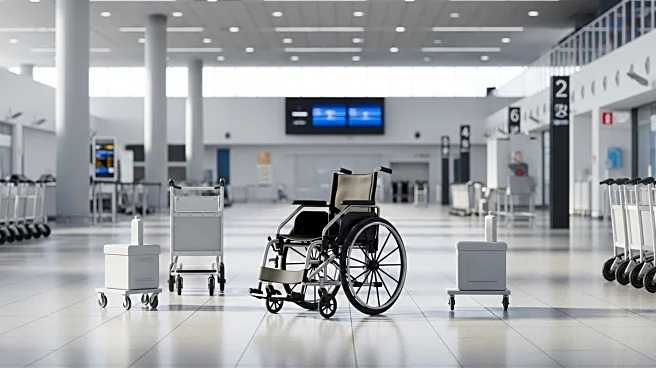What is the story about?
What's Happening?
Southwest Airlines has announced a new policy requiring passengers using lithium-powered mobility devices to remove the batteries and carry them into the cabin. This measure, effective September 25, aims to reduce the risk of in-flight fires and aligns with international safety standards. The removed batteries will not count toward a passenger's carry-on baggage allowance. The policy also restricts the size of lithium batteries eligible for transportation to 300 watt-hours or less, with a grace period for larger batteries until January 11, 2026.
Why It's Important?
The new policy by Southwest Airlines is significant as it addresses safety concerns related to lithium batteries, which have been identified as common sources of smoke and fire incidents on aircraft. By implementing these measures, Southwest Airlines is taking proactive steps to enhance passenger safety and align with international standards. This move may influence other airlines to adopt similar policies, impacting passengers who rely on mobility devices and potentially setting a precedent for industry-wide safety practices.
What's Next?
Passengers with batteries larger than 300 watt-hours will have a grace period until January 11, 2026, to comply with the new policy. After this date, devices with batteries above the limit will no longer be accepted for transport. Other airlines, such as American Airlines, Delta Air Lines, and United Airlines, may review and adjust their own policies regarding the transportation of mobility device power supplies in response to Southwest's actions.















